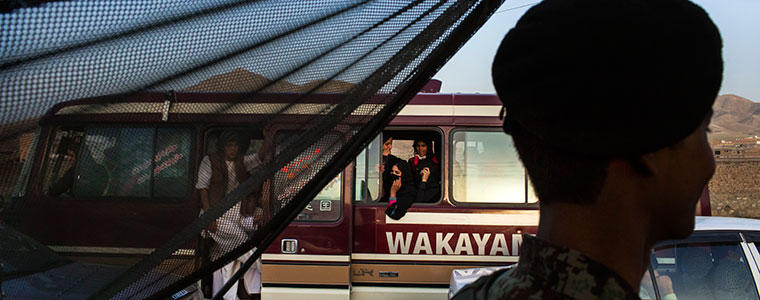
The U.S. Central Command on August 27 released a six-month investigation report on the burning of Korans in Afghanistan last February which sparked riots and deadly violence across Afghanistan. According the military report, a shoddy security sweep of books and documents destined for the incinerator from an Afghan prison was due to miscommunication among the senior leaders at the facility who provided poor guidance to the junior officers. The junior officers had consulted with a translator who said that the majority of the prison’s library collection was extremist literature.
Due to a series of errors, the Army’s investigation cited that junior officers may have tried to burn about 500 copies of the Koran and 1,200 religious texts until local staff stopped the incinerator from functioning. Afghan officials are demanding that the American soldiers be placed on trial, however the U.S. Army announced that it will take disciplinary action against six soldiers because the actions were unintentional and due to unawareness.
Brigadier General Bryan Watson, investigator and author of the report, stated: “I absolutely reject any suggestion that those involved acted with malicious intent to disrespect the Koran or defame the faith of Islam.” General Watson also wrote, “U.S. service members did not heed the warnings of their [Afghan army] partners is, perhaps, my biggest concern.”
The Army report also acknowledged a deeply flawed understanding of religion, poor cultural training and a poor command of local language skills. As The Washington Post’s Craig Whitlock reported, “before their deployment to Afghanistan, the troops were exposed only to about an hour-long PowerPoint presentation about Islam.”
Indeed, the U.S.’s decade-long presence in Afghanistan raises questions how there can still be basic knowledge gaps in culture, religion, tribal customs and effective civil-military relations.
The defamation of the Koran exemplifies the need to better understand the vital role of religious leaders and communities and their multidimensional function in maintaining peace and stability in their respective communities. In religious conservative societies, religious actors are key civil society actors, who contribute to the wider field of peacebuilding. This USIP report highlights the need to have a long-term commitment to a comprehensive approach that focuses on local community while engaging the middle and top levels of religious leadership.
Read the USIP Peace Brief, "The Koran Desecration and the Role of Religion in Conflict"